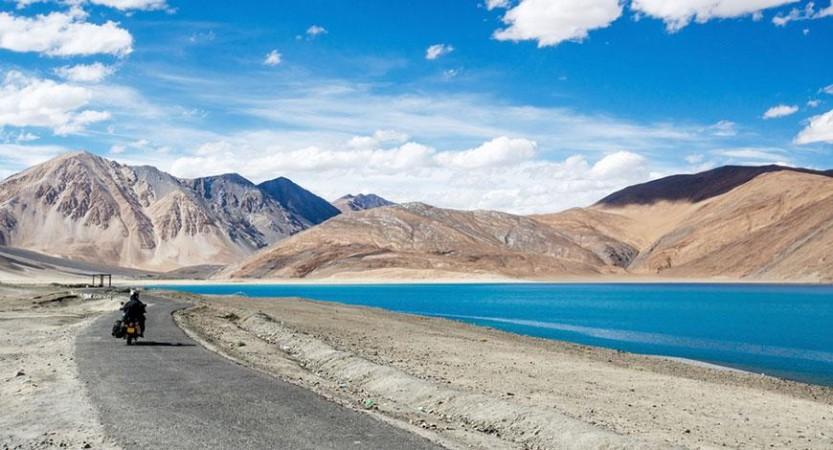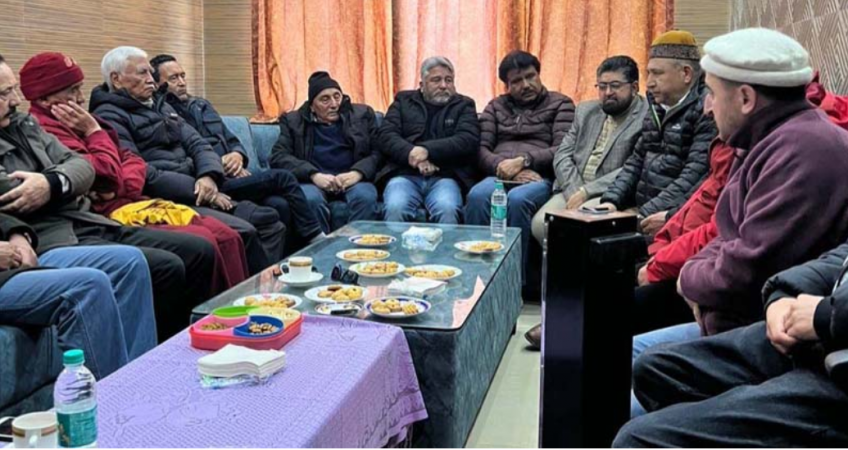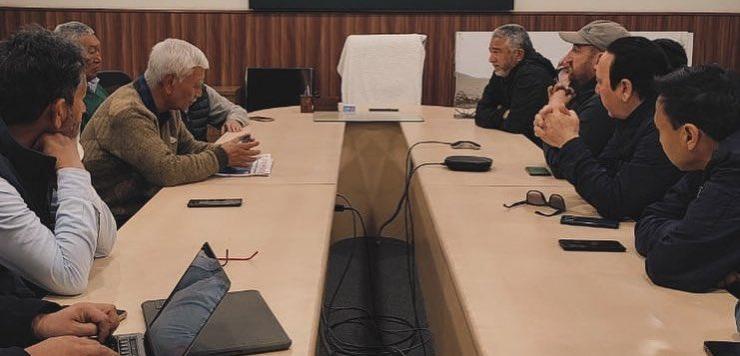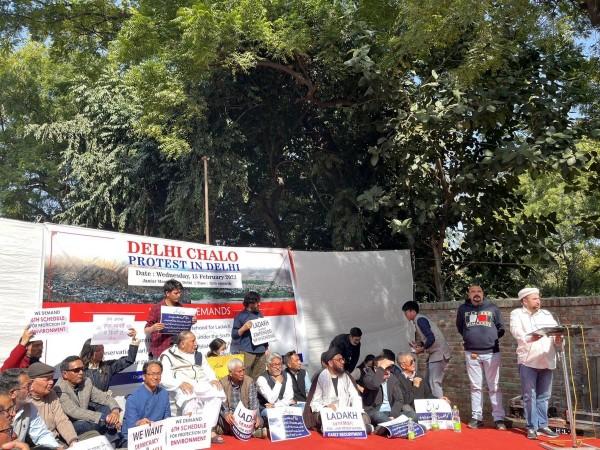
As Saturday's meeting with the High-Power Committee of the Ministry of Home Affairs was held in a cordial atmosphere, the agitating Ladakhi groups are optimistic about the solution to their demands.
"We are satisfied with the outcome of today's meeting because discussions on all issues were held with an open mind", former minister and one of the members of the six-member sub-committee of agitating Ladakhi groups Chering Dorjay Lakrook told The International Bussiness Time.
"We are moving forward with a positive outcome, hopefully, the date of the next meeting will be announced within a day or two", he further said.
"I can say that today's meeting was meaningful and fruitful because detailed discussions were held on all issues raised by the sub-committee", Dorjay further said.

Qamar Ali Akhnoon, another one of the members of the six-member sub-committee told media persons that threadbare discussions were held on four issues including statehood for Ladakh, the constitutional guarantee under the Sixth Schedule, separate Public Service Commission for Ladakh and job rights for residents of Ladakh". He added that the response of the Centre's representatives was very positive and encouraging.
Reports said that during today's meeting, the representatives of the MHA High-Power Committee discussed the legal aspects of the demands raised by the agitating Ladakhi groups.
Members of the Sub-Committee of the agitating groups are hopeful that some positive decisions are likely to be taken on reservation for locals in the jobs.

Agitating groups constitute a sub-committee to continue dialogue with the Centre
After they met with the HPC on February 19, the agitating groups of Ladakh constituted a six-member Sub-Committee to carry forward dialogue with the Union Government.
The sub-committee comprised Thupstan Chhewang, former Lok Sabha member, Chering Dorjay Lakrook, Nawang Rigzin Jora, Qamar Ali Akhoon, (former ministers) Asgar Ali Karbalai, (ex-MLA) and Sajjad Kargili (social activist).
- The first round of dialogue between agitating groups in Ladakh and the HPC, under the chairmanship of Minister of State for Home Affairs, Nityanand Rai, was held in New Delhi on December 4, 2023.
- After a gap of over two months the second meeting of the leaders of the Leh Apex Body (LAB) and the Kargil Democratic Alliance (KDA), Kargil, with the high-powered committee of the Union Home Ministry, was held in Delhi on February 19.
- During the meeting, it was decided that the dialogue would continue to evolve consensus on all issues, including the demand for statehood, sixth schedule, etc.
- On February 24, the third meeting was held in which both the groups agreed to continue the dialogue as the discussions were held in a cordial atmosphere.
Formation of the High Powered Committee (HPC)
In a significant move on January 3, 2023, the Ministry of Home Affairs established a High Powered Committee (HPC) under the leadership of Minister of State for Home Affairs, Nityanand Rai. This committee was tasked with deliberating on crucial issues related to land and employment safeguards for the Union Territory of Ladakh.
Addressing Ladakh's concerns
The formation of the HPC aimed to address the specific challenges faced by Ladakh, considering its distinct cultural heritage, geographical location, and strategic significance. The committee's mandate encompassed devising measures to safeguard Ladakh's culture and language amidst changing dynamics.
Ladakh's transition to a Union Territory
Following the reorganization of the erstwhile state of Jammu and Kashmir into two union territories in 2019, Ladakh emerged as a separate union territory. This transition heralded a new era for Ladakh, necessitating comprehensive measures to protect its interests and ensure sustainable development.

Advocacy for constitutional protections
In the wake of these changes, various Ladakhi groups, including the Apex Body of Ladakh, embarked on a campaign advocating for constitutional safeguards for the region's people and environment. Central to their demands were calls for constitutional protections, particularly in light of Ladakh's unique socio-cultural landscape.
Key demands and agitation
Led by organizations such as the Ladakh Buddhist Association (LBA) and the Kargil Democratic Alliance (KDA), the agitation in Ladakh centered around four major demands. These included the pursuit of full-fledged statehood, the implementation of the Sixth Schedule to safeguard tribal interests, the allocation of separate Lok Sabha seats for Kargil and Leh, and the establishment of a 'Ladakh Public Service Commission with specific criteria for recruitment.
Submission of demands to the MHA
In their engagement with the Ministry of Home Affairs, Ladakhi groups presented a comprehensive set of demands, underscoring the need for constitutional safeguards under the Sixth Schedule of the Indian Constitution. These demands reflected the aspirations and concerns of the Ladakhi people, emphasizing the importance of preserving their unique identity and ensuring equitable development.
The constitution of the HPC marked a pivotal step towards addressing Ladakh's evolving needs and aspirations, signaling a commitment to inclusive governance and responsive policymaking in the region.














